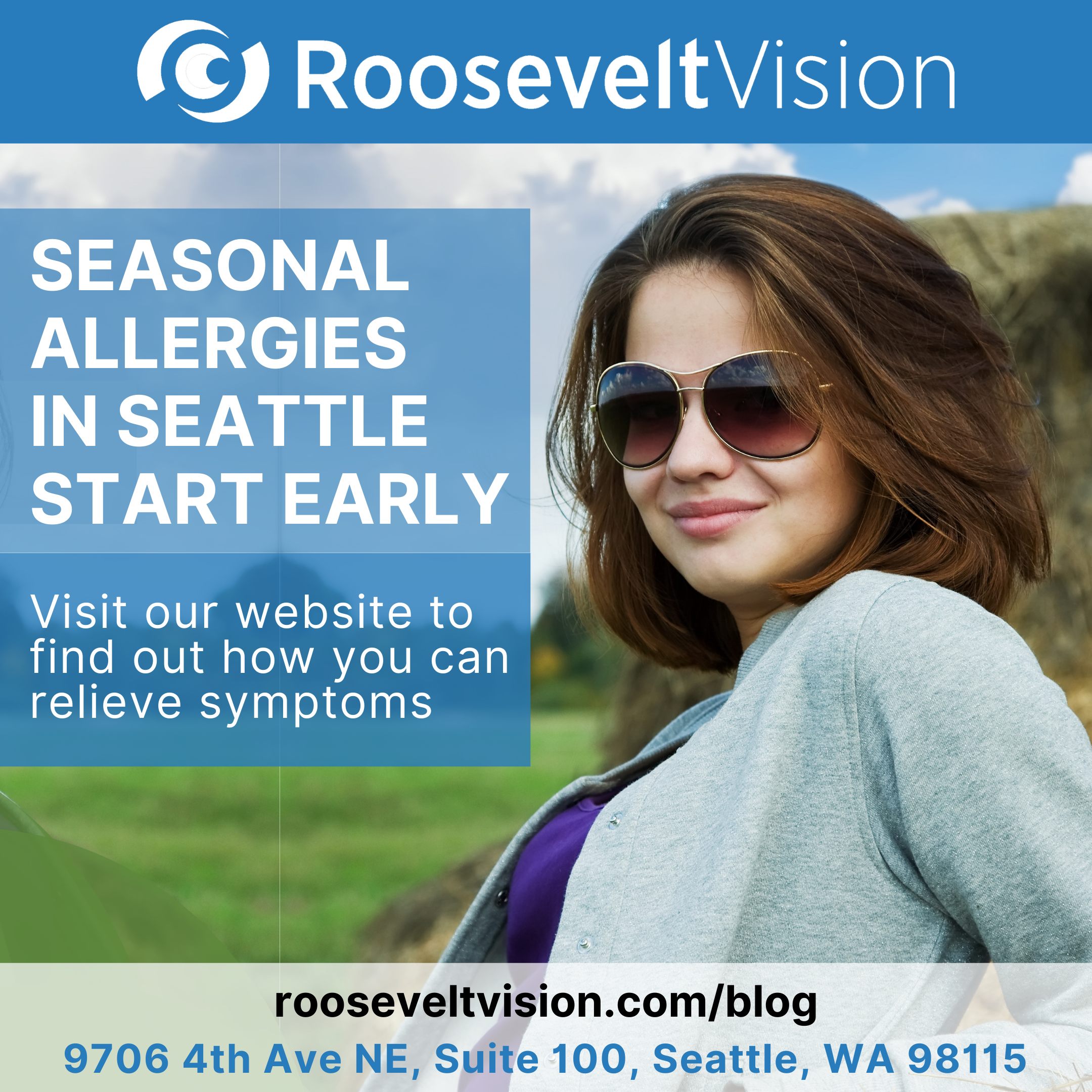Seasonal Allergies in Seattle Start Early
Ocular allergy, also known as allergic conjunctivitis, is one of the most common eye conditions people experience seasonally and/or throughout the year. The most common symptoms caused by allergies are red, itchy, watery, and sometimes dry feeling eyes. Allergy symptoms can be isolated to the eyes, or be more widespread, causing nasal, respiratory, or skin issues, which may require a more comprehensive allergy work up by an allergy specialist or your primary care provider.
In general, lid hygiene is one of the most important steps to reducing allergens and irritations associated with allergies and dry eyes. Taking the time to carefully remove eye makeup and clean the eyelids and lashes will go a long way to reducing symptoms. When allergen counts are high, it is also helpful to use artificial tears to lubricate the eyes and flush out the allergens throughout the day. Reducing contact lens use is also helpful. Other options for contact lens users include wearing daily disposable contacts.
For mild ocular allergy symptoms, cold compresses and refrigerated preservative free lubricating drops can both be very helpful. In addition to various artificial tears and homeopathic eye drops, as of March 2020, some of the most effective ocular allergy medications that were previously available only by prescription (olopatadine) are now available over the counter. When over the counter options are not enough, we can also prescribe stronger allergy medications.
We strongly recommend avoiding decongestant over the counter eye medications such as Naphcon-A or Visine products. Decongestant ingredients such as naphazoline/pheniramine can cause rebound redness which can cause a vicious cycle of having your eyes become red again and again.

